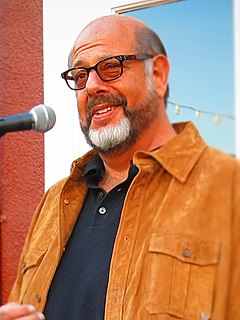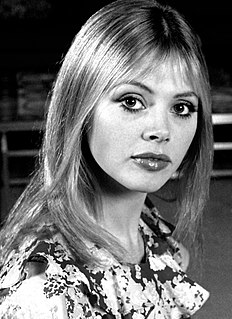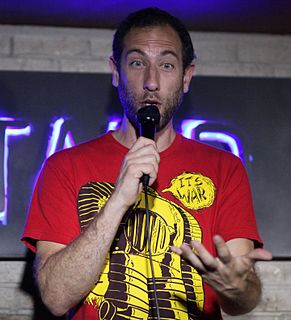A Quote by Sarah Rees Brennan
Alan: "I had terrible stage fright." Sin: "I'm not familiar with the concept of 'stage fright.'" A: "It's pretty awful. You end up having to picture the entire audience in their underwear. Phyllis was in that audience, you know." S: "Why, Alan, I had no idea your tastes ran that way." A: "Phyllis is a very nice lady. And I do not consider her so much aged as matured, like a fine wine. But I still think you owe me an archery lesson.
Related Quotes
I got on stage and I went, "Oh wow. No stage fright." I couldn't do public speaking, and I couldn't play the piano in front of people, but I could act. I found that being on stage, I felt, "This is home." I felt an immediate right thing, and the exchange between the audience and the actors on stage was so fulfilling. I just went, "That is the conversation I want to have."
There has been in our time a lack of reliance on language and a lack of experimentation which are frightening to anyone who sees them as symptoms. We know the phenomenon of stage-fright: it holds the player shivering, incapable of speech or action. Perhaps there is an audience-fright which the play can feel, which leaves him with these incapacities.
Normally classical music is set up so you have professionals on a stage and a bunch of audience - it's us versus them. You spend your entire time as an audience member looking at the back of the conductor so you're already aware of a certain kind of hierarchy when you are there: there are people who can do it, who are on stage, and you aren't on stage so you can't do it. There's also a conductor who is telling the people who are onstage exactly what to do and when to do it and so you know that person is more important than the people on stage.
I love readings and my readers, but the din of voices of the audience gives me stage fright, and the din of voices inside whisper that I am a fraud, and that the jig is up. Surely someone will rise up from the audience and say out loud that not only am I not funny and helpful, but I'm annoying, and a phony.






































